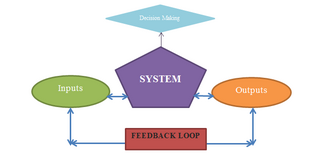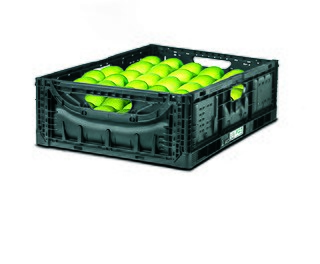Ecological modernization is a school of thought that argues that both the state and the market can work together to protect the environment. It has gained increasing attention among scholars and policymakers in the last several decades internationally. It is an analytical approach as well as a policy strategy and environmental discourse.
The Hannover Principles is a set of statements about designing buildings and objects with forethought about their environmental impact, their effect on the sustainability of growth, and their overall impact on society. They were first formulated by William McDonough and Michael Braungart for planning Expo 2000 in Hanover and are presented in a copyrighted 1992 document.

Downcycling, or cascading, is the recycling of waste where the recycled material is of lower quality and functionality than the original material. Often, this is due to the accumulation of tramp elements in secondary metals, which may exclude the latter from high-quality applications. For example, steel scrap from end-of-life vehicles is often contaminated with copper from wires and tin from coating. This contaminated scrap yields a secondary steel that does not meet the specifications for automotive steel and therefore, it is mostly applied in the construction sector.

William Andrews McDonough is an American architect and academic. McDonough is the founding principal of William McDonough + Partners and was the dean of the School of Architecture at the University of Virginia. He works in green and sustainable architecture, often incorporating his theory of cradle-to-cradle design.

Cradle to Cradle: Remaking the Way We Make Things is a 2002 non-fiction book by German chemist Michael Braungart and US architect William McDonough. It is a manifesto detailing how to achieve their Cradle to Cradle Design model. It calls for a radical change in industry: a switch from a cradle-to-grave pattern to a cradle-to-cradle pattern. It suggests that the "reduce reuse recycle" methods perpetuate this cradle-to-grave strategy, and that more changes need to be made. The book discourages downcycling, but rather encourages the manufacture of products with the goal of upcycling in mind. This vision of upcycling is based on a system of "lifecycle development" initiated by Braungart and colleagues at the Environmental Protection Encouragement Agency in the 1990s: after products have reached the end of their useful life, they become either "biological nutrients" or "technical nutrients". Biological nutrients are materials that can re-enter the environment. Technical nutrients are materials that remain within closed-loop industrial cycles.
Ecotechnology is an applied science that seeks to fulfill human needs while causing minimal ecological disruption, by harnessing and manipulating natural forces to leverage their beneficial effects. Ecotechnology integrates two fields of study: the 'ecology of technics' and the 'technics of ecology,' requiring an understanding of the structures and processes of ecosystems and societies. All sustainable engineering that can reduce damage to ecosystems, adopt ecology as a fundamental basis, and ensure conservation of biodiversity and sustainable development may be considered as forms of ecotechnology.

Monika Griefahn is a German politician and one of the co-founders of Greenpeace. She is a member of the Social Democratic Party (SPD).

Cradle-to-cradle design is a biomimetic approach to the design of products and systems that models human industry on nature's processes, where materials are viewed as nutrients circulating in healthy, safe metabolisms. The term itself is a play on the popular corporate phrase "cradle to grave", implying that the C2C model is sustainable and considerate of life and future generations—from the birth, or "cradle", of one generation to the next generation, versus from birth to death, or "grave", within the same generation.

Upcycling, also known as creative reuse, is the process of transforming by-products, waste materials, useless, or unwanted products into new materials or products perceived to be of greater quality, such as artistic value or environmental value.
gDiapers are a hybrid diaper, so users can choose to use either a cloth insert or a disposable insert that can be flushed or composted. Co-founders are Jason and Kimberley Graham-Nye. gDiapers began being sold in 2004. gDiapers are licensed from Kuver Designs Pty Ltd, Tasmania, "Eenee designs" diapers.

Regenerative design is an approach to designing systems or solutions that aims to work with or mimic natural ecosystem processes for returning energy from less usable to more usable forms. Regenerative design uses whole systems thinking to create resilient and equitable systems that integrate the needs of society with the integrity of nature. Regenerative design is an active topic of discussion in engineering, landscape design, food systems, and community development.
This page is an index of sustainability articles.

Material ConneXion is a materials consultancy, headquartered in New York City, New York.

IFCO trays are a type of reusable packaging for transporting fresh food produce. IFCO SYSTEMS is the name of the company that first developed a pooling service for reusable plastic trays for fresh produce in 1992, when the company was founded in Pullach, Germany. IFCO is the acronym for International Food Container Organization.
Sustainable products are products who are either sustainability sourced, manufactured or processed that provide environmental, social and economic benefits while protecting public health and environment over their whole life cycle, from the extraction of raw materials until the final disposal.

Sustainable furniture design and sustainable interior design is the design of a habitable interior using furniture, finishes, and equipment while addressing the environmental impact of products and building materials used. By considering the life-cycle impact of each step, from raw material through the manufacturing process and through the product's end of life, sustainable choices can be made. Design considerations can include using recycled materials in the manufacturing process, reutilizing found furniture and using products that can be disassembled and recycled or reclaimed after their useful life. Another method of approach is working with local materials and vendors as a source for raw materials or products. Sustainable furniture design strives to create a closed-loop cycle in which materials and products are perpetually recycled so as to avoid disposal in landfills.
Triple top line is first mentioned by McDonough and Braungart (2002). The triple bottom line, an accounting framework coined by John Elkington in 1994, focuses on aligning sustainability and the intentions of a business when it comes to profit, whereas triple top line is a focus to align sustainability and business profitability from the inception of a product. The TTL approach is an integral part of the process from the beginning of a product's development through its future development and marketing strategic planning.
Ecopreneurship is a term coined to represent the process of principles of entrepreneurship being applied to create businesses that solve environmental problems or operate sustainably. The term began to be widely used in the 1990s, and it is otherwise referred to as "environmental entrepreneurship." In the book Merging Economic and Environmental Concerns Through Ecopreneurship, written by Gwyn Schuyler in 1998, ecopreneurs are defined as follows:
"Ecopreneurs are entrepreneurs whose business efforts are not only driven by profit, but also by a concern for the environment. Ecopreneurship, also known as environmental entrepreneurship and eco-capitalism, is becoming more widespread as a new market-based approach to identifying opportunities for improving environmental quality and capitalizing upon them in the private sector for profit. "
Sustainable Materials Management is a systemic approach to using and reusing materials more productively over their entire lifecycles. It represents a change in how a society thinks about the use of natural resources and environmental protection. By looking at a product's entire lifecycle new opportunities can be found to reduce environmental impacts, conserve resources, and reduce costs.
Ecoleasing is a system in which goods are rented to a client for a certain period of time after which he returns the goods so the company that made it can recycle the materials.










